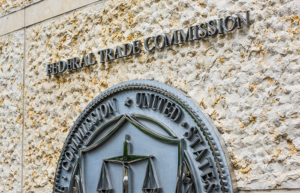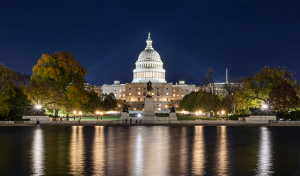
In 2015 in Paris, countries from around the world agreed to accelerate the decarbonization of their economies in response to climate change. According to the United Nations Framework Convention on…
By Roger Pielke Jr. | November 20, 2025

By late September, the New York Times had identified “more than 145” instances of people being “fired, suspended, reassigned or pushed to resign . . . for things they said…
By Clay Calvert | November 19, 2025

Antitrust enforcement in the United States too often fails to deliver what it promises. The Justice Department and Federal Trade Commission have won historic cases—the breakups of Standard Oil and…
By Mark Jamison | November 18, 2025
Following my lecture last week at Cornell, one Cornell professor, a well-known climate activist, called for the firing of the director of the Cornell Atkinson Institute for Sustainability — an accomplished scientist…
By Roger Pielke Jr. | November 17, 2025

The National Environmental Policy Act of 1969 is the basic law governing federal reviews of construction projects’ environmental impacts. Unfortunately, it has evolved into an environmentally destructive monstrosity. Why? Because…
By Benjamin Zycher | November 17, 2025

The United States faces a cybersecurity crisis: not from foreign actors, but from internal political deadlock that has dismantled one of its most effective defense tools. The Cybersecurity Information Sharing…
By Shane Tews | November 17, 2025

I spent this week in Ithaca, New York visiting Cornell University. It was a fantastic visit. I met with faculty, researchers, students, staff, administrators, and taught a few classes. I…
By Roger Pielke | November 14, 2025

On November 6, Reuters reported that Google was planning to build a large artificial intelligence data center on Australia’s Indian Ocean territory—Christmas Island—after signing a deal with the Australian Department…
By Bronwyn Howell | November 14, 2025

It has become popular in both parties to believe that the government should be in the business of being in business. From Democrats proposing city-run grocery stores to Republicans buying…
By Mark Jamison | November 13, 2025
Something curious is going on in the world of climate advocacy. As THB readers know, projected future carbon-dioxide emissions from fossil-fuel combustion have been consistently revised downward in recent years,…
By Roger Pielke Jr. | November 12, 2025

Summary: BLM proposes “to rescind” the 2024 final “Conservation and Landscape Health Rule” adopted on May 9, 2024. Despite the promise in the 2024 final rule that it “defines the…
By Benjamin Zycher | November 12, 2025

The Federalist Society produced a webinar recently that I found fascinating, not only because I was a panelist. There was a marked divergence of opinion on Fourth Amendment law. I…
By Jim Harper | November 12, 2025

Earlier this year, Charter Communications, Inc. and Cox Communications announced a $34.5 billion proposed merger. If completed, the combined company would become both the largest cable television provider and the…
By Daniel Lyons | November 10, 2025

Satellite communications used to be the domain of weather forecasters, cable providers, and aerospace engineers. That changed when Low Earth Orbit (LEO) satellites came along—and when Elon Musk decided to…
By Mark Jamison | November 10, 2025

My fall university tour continues with a visit to Johns Hopkins this week, Cornell next week, and the University of Wyoming on November 19. If you are local please come and say Hello, and…
By Roger Pielke Jr. | November 7, 2025